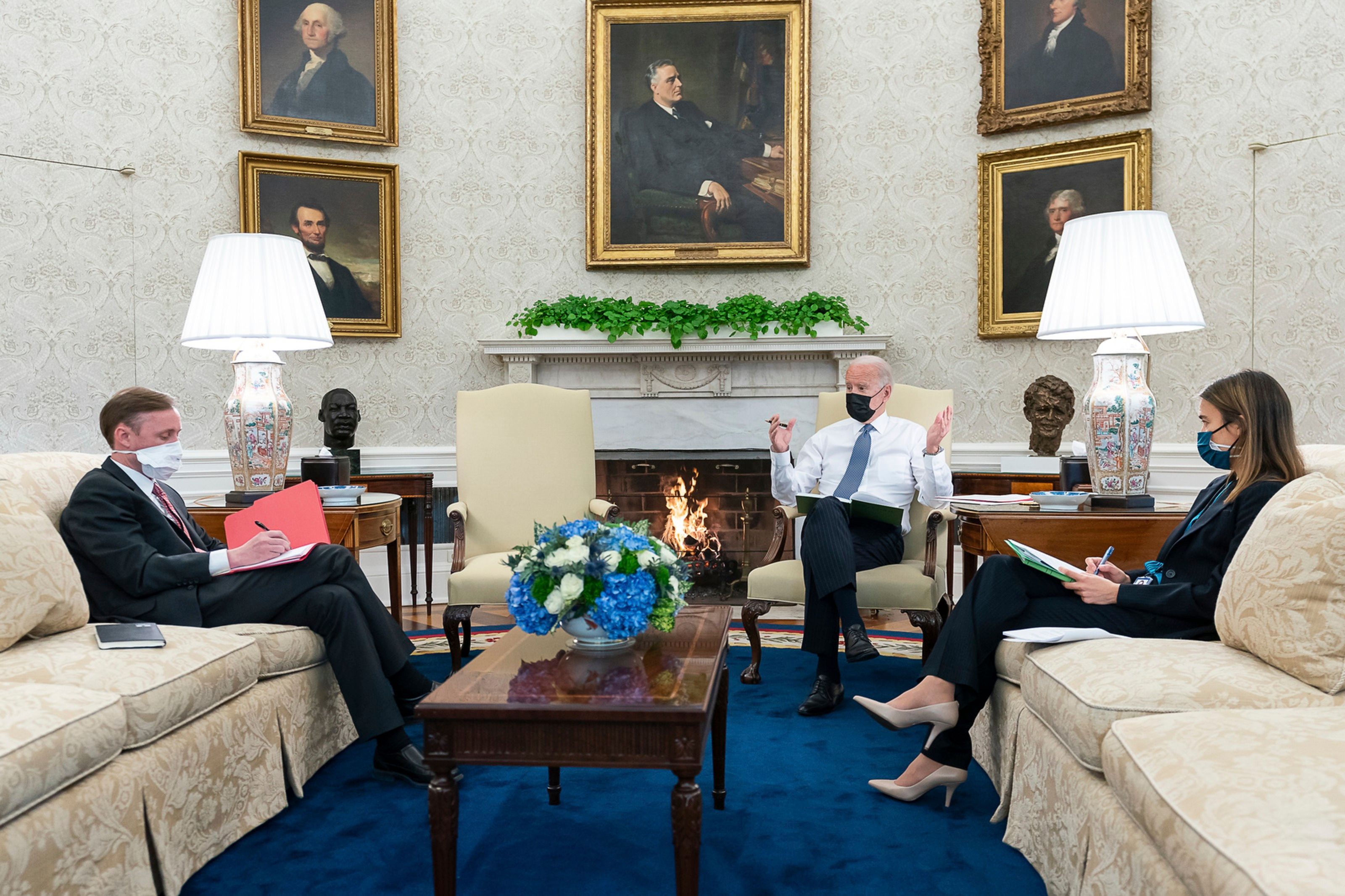The Prospect of Tighter Cooperation: Slovakia on the New U.S. Administration

Continuation and Change in Slovak-American Relations
The change of government in the U.S. is favourable for Slovakia to further tighten bilateral cooperation. The four-party right-wing coalition cabinet that took over in Slovakia in March 2020 (despite the change of government in April 2021 from Igor Matovič’s cabinet to the new one of Eduard Heger) more strongly emphasises the need to develop transatlantic relations based on security guarantees and shared values than the coalition of the social democratic SMER in the previous two parliamentary terms. This is confirmed by the security and defence strategies adopted by the Slovak parliament in January this year. This approach has been supported by President Zuzana Čaputová, who has been in office since mid-2019, as well as by the former ambassador to the U.S. and current Minister of Foreign Affairs Ivan Korčok, who supports the deepening of transatlantic relations initiated by the former governments of both states. In 2019, relations tightened with the first visit of a sitting U.S. secretary of state to Bratislava in 20 years and the first reception of a Slovak prime minister at the White House since 2013, which was part of a series of similar visits by the heads of the governments of Czechia, Hungary, and Austria.
Security remains the pillar of Slovak-American cooperation, which was confirmed in a bilateral memorandum from February this year on the safe destruction of conventional weapons. Moreover, the Slovak government responded positively to President Joe Biden’s suspension of the Trump-era plan to withdraw American troops from Germany. Slovakia in 2020 achieved the NATO goal of 2% of GDP spending on defence for the first time and declared that it will attain it annually from 2024 on. The deal involved the purchase of 14 F-16 multirole fighters from the U.S. The first four units from this largest purchase in the history of the Slovak military ($1.8 billion) will arrive next year.
Slovakia’s relations with the U.S. are influenced by cooperation with China and Russia, which the American government sees as its international rivals. In October last year, a Slovak-U.S. agreement on security of 5G networks, which limited Chinese tech giant Huawei’s activities in Slovakia, enhanced the partners’ relations. In turn, after the change of American president, Slovakia joined the U.S. criticism of the changes to the elections law in Hong Kong adopted by the Chinese parliament.
On Russia, at Matovič’s initiative, the Slovak government obtained doses of the Russian Sputnik V vaccine, a move that ultimately resulted in the change of prime minister. The Biden administration’s response to this purchase by Slovakia—but also by Hungary, which acquired both Russian and Chinese vaccines—was to criticise Russia and China of using their vaccines as “diplomatic means”.
Multilateral Activities
The Slovak government has a positive view of the U.S. return to policy based on multilateralism. Therefore, it also welcomed Biden’s decision to reverse the Trump administration’s goal of leaving the WHO. In turn, the U.S. declaration that it would return to the Paris climate agreement was backed by President Čaputova, for whom climate and ecological issues are a priority. Slovakia sees the extension of the validity of the Strategic Arms Reduction Treaty (New START), as well as the nuclear agreement with Iran (JCPOA), from which Trump withdrew the U.S., as an element of arms control.
Slovakia wants to use its membership in the EU to strengthen trans-Atlantic relations. The promotion of stronger EU-U.S. relations was included in the government’s 2020-2024 programme. The Slovak government welcomed Biden’s speech to the Munich Security Conference in February that emphasised the need for American-European cooperation. Slovakia also publicly supported the synchronisation of EU and U.S. actions in imposing sanctions on Russian state officials responsible for poisoning opposition leader Alexei Navalny. In contacts with the U.S., the Slovak government will try to take advantage of the good relations with neighbouring Ukraine, a country with which Biden also wants to cooperate more closely, and of involvement in European integration in the Western Balkans. Minister Korčok called for joint U.S. and EU support for these countries in March this year. Heger, in turn, combines the change of U.S. administration with the possibility of reaching an agreement with the EU on the digital tax.
Slovak Expectations
Slovakia is taking advantage of the U.S. return to a values-based policy (e.g., rule of law) in the latter’s relations with Central European states. By strengthening the fight against corruption, the Heger government will try to build credibility not only for domestic purposes, by making previous governments accountable, but also with the Biden administration. The prevalence of corruption in Slovakia was indicated in a U.S. State Department report from 30 March. The Slovak government views the announcement by new Secretary of State Antony Blinken that the U.S. has banned entry to the country of former General Prosecutor Dobroslav Trnka, who has been charged in Slovakia with covering up corruption, as beneficial. The need for a joint fight against corruption was proclaimed by U.S. Ambassador to Slovakia Bridget Brink in talks with the Slovak authorities.
Slovakia wants to intensify economic, scientific, and research cooperation with the U.S. This approach was advocated by Matovič and is shared by Heger, who was employed by companies dealing with transatlantic trade. The trade volume between Slovakia and the U.S. increased from around $1.2 billion in 2010 to around $5.5 billion in 2019. Slovakia has a positive trade balance, and the U.S. is the ninth-largest export market for Slovak products, mainly in the automotive sector. During the COVID-19 pandemic, however, trade volume has not changed much, and in 2020, it was comparable to the previous year. However, this past year also showed that Slovakia can offer technology valued by the U.S. In response to the growing American demand for respirators, Slovak company IPM Chirana launched the production of these devices in the U.S. Technological cooperation is to be revived by an agreement concluded in February this year between the Slovak government and the Massachusetts Institute of Technology that will enable financing of joint research projects.
Conclusions and Perspectives
The change of government in the U.S. in January 2021, and 10 months earlier in Slovakia, has made it possible to incorporate both their convergent views and the common need to respect democratic values in international relations. The clear voice of the Slovak authorities on this issue puts them in a favourable position to tighten relations with the Biden administration. In this respect, Slovakia stands out from its Visegrad partners.
In addition to deepening defence and technological cooperation, in accordance with the Visegrad digital declaration of February this year, the Slovak authorities, in relations with partners, will use the U.S. administration's return to respect of the rule of law as a key argument. It will also be used to build credibility in the fight against the corruption under the SMER governments. President Čaputova and Minister Korčok will remain active in strengthening cooperation with the U.S. Also, Prime Minister Heger, due in part to his familiarity with and approach to the U.S., may strive to deepen transatlantic relations even more than Matovič. Despite the change in the post of prime minister, Slovakia’s policy towards Russia will remain a challenge in its relations with the U.S. Some countries, including Poland, have the advantage over Slovakia in this area, as they pursue an unequivocal policy towards Russia, including with regard to vaccines.
Strengthening Slovak-American relations is in Poland’s interest, particularly in the context of cooperation on NATO’s Eastern Flank where troops from both countries are stationed as part of a multinational battalion group (in Latvia). Slovakia wants to take advantage of the American return to multilateralism, and thanks to EU membership, it seeks to strengthen its position in transatlantic relations. Unlike Poland, Slovakia remains one of the least committed members of the Three Seas Initiative (TSI) and, for example, has so far refrained from joining the Three Seas Fund (along with Czechia and Austria). The U.S., however, maintains support for the TSI, as evidenced by Blinken’s appeal for countries to join the initiative’s fund.


